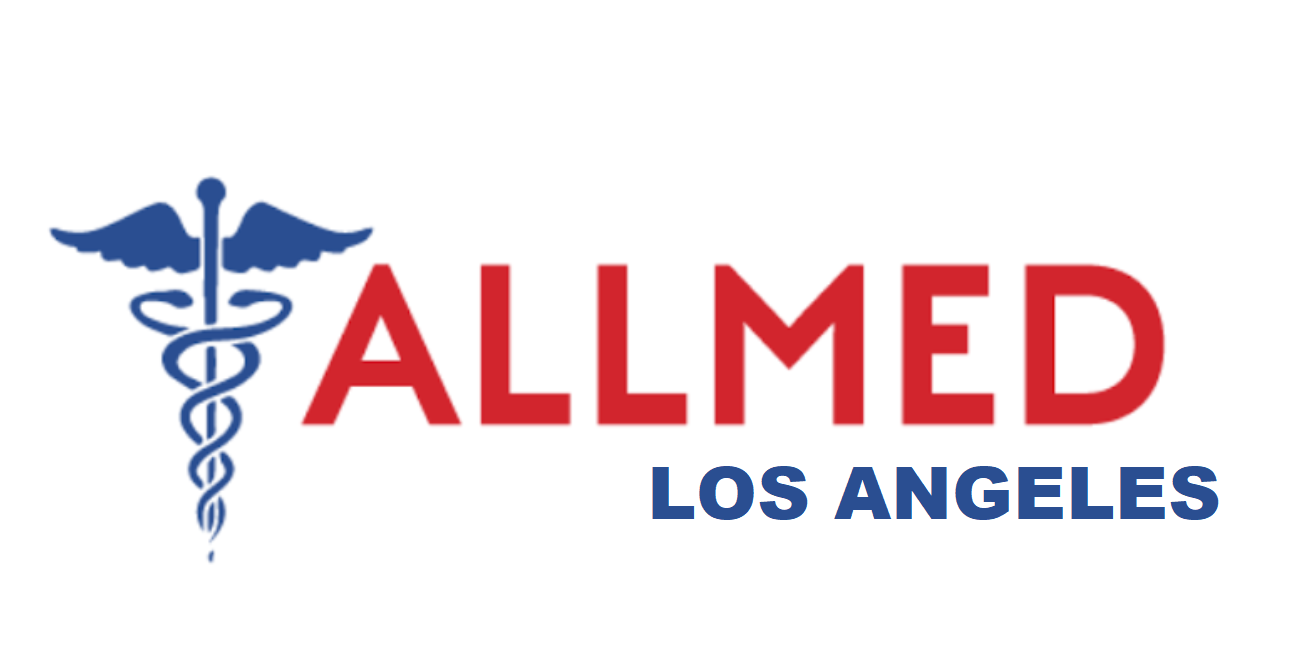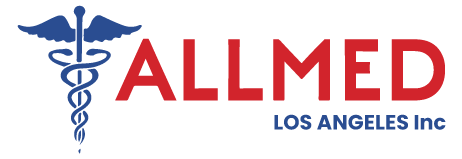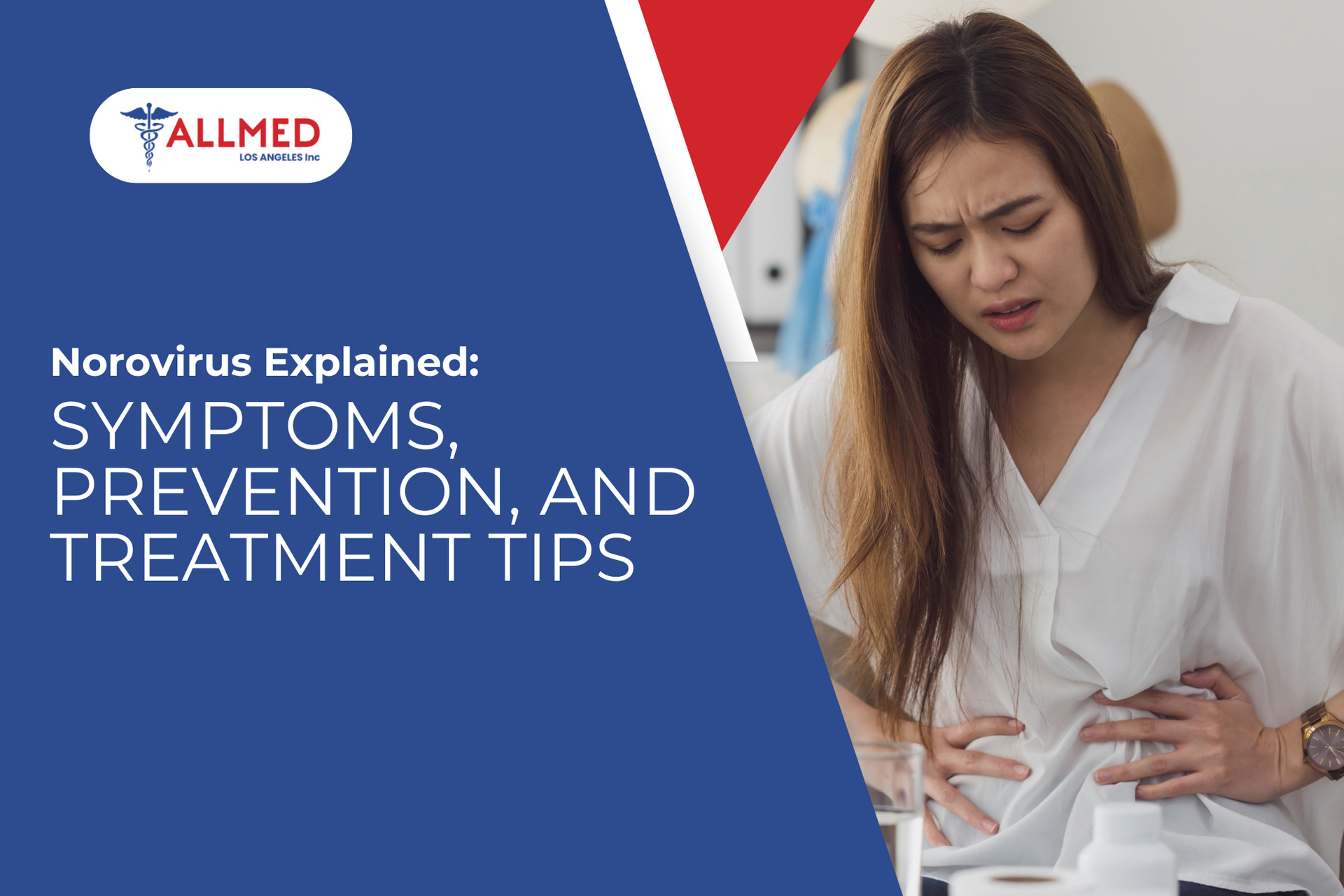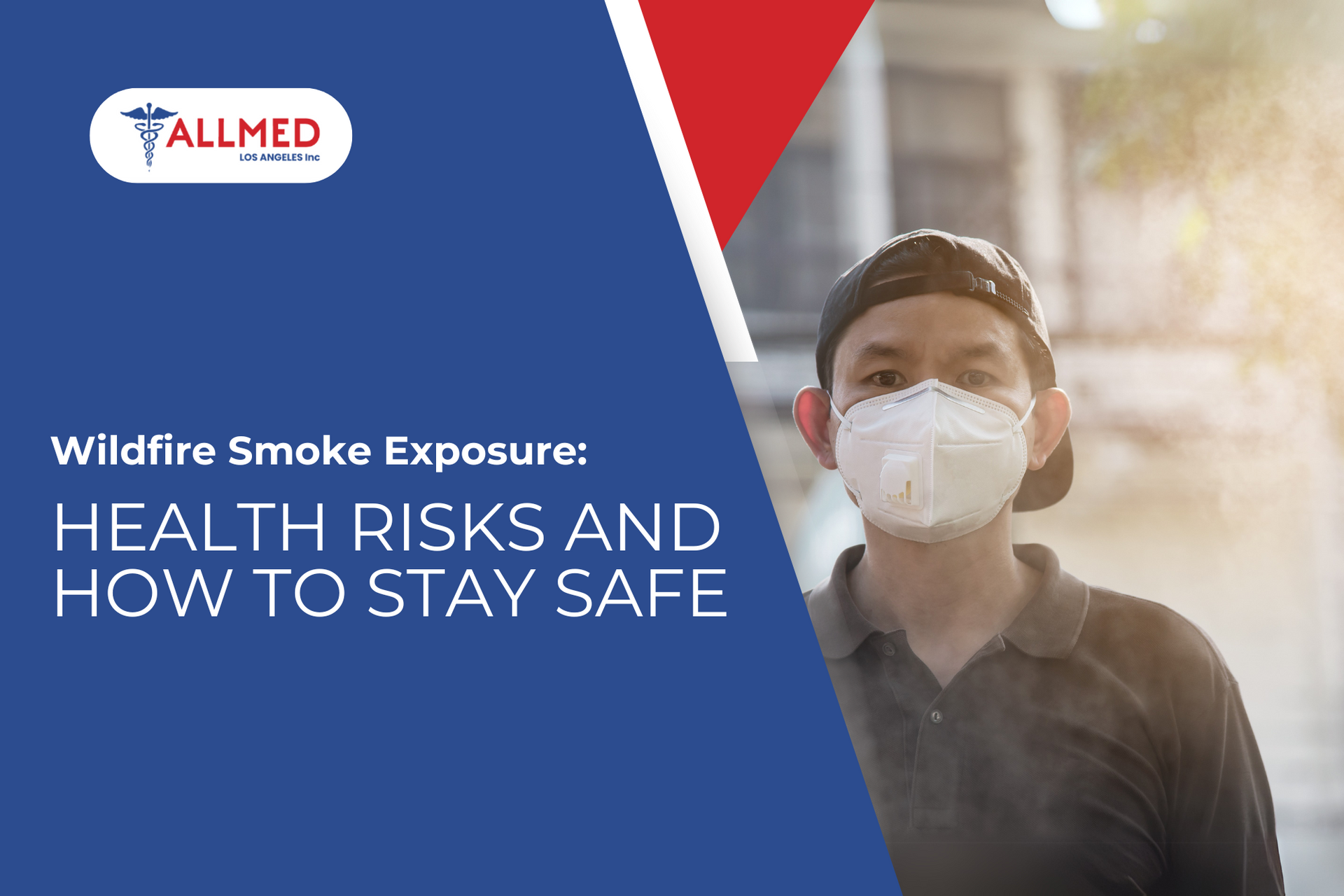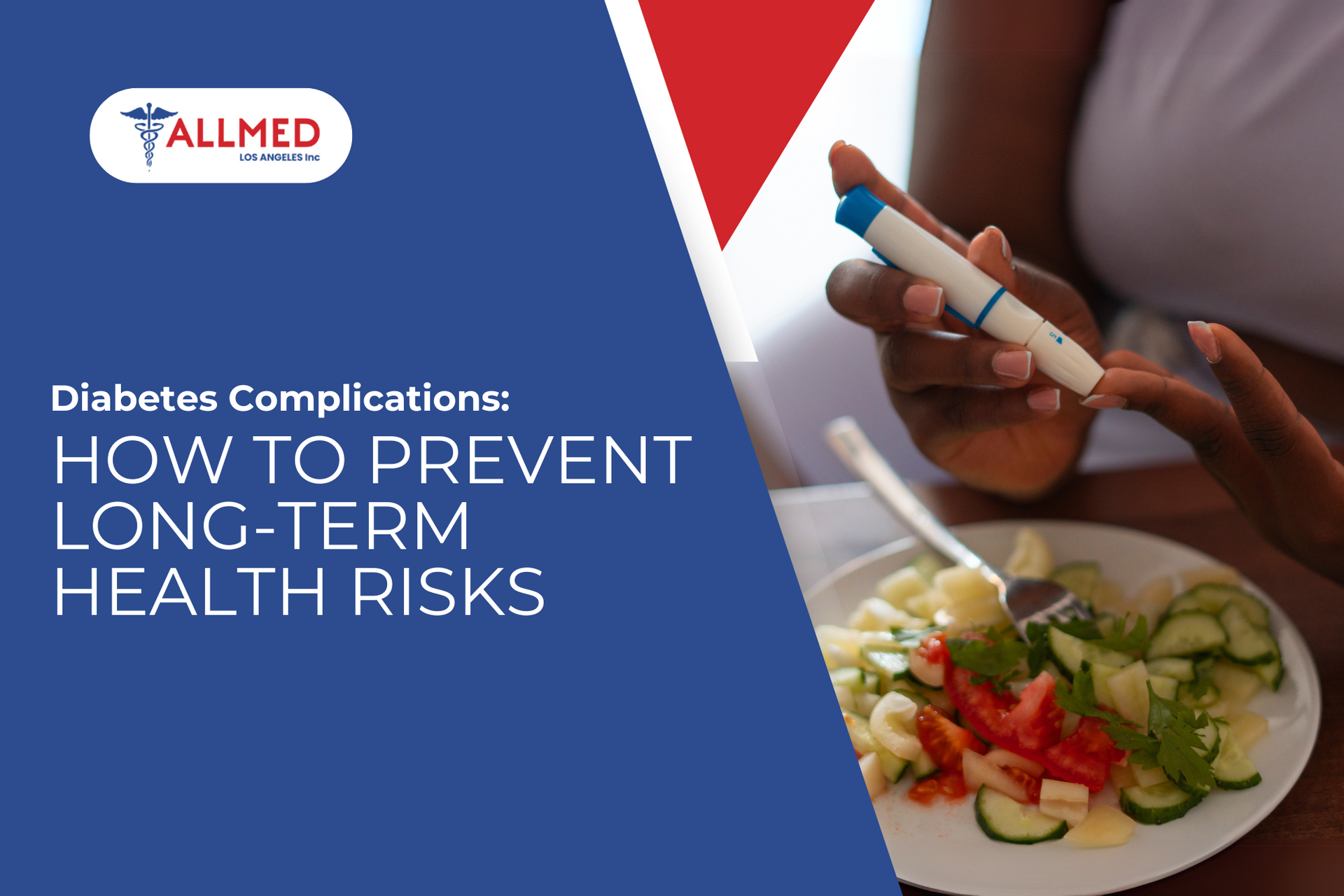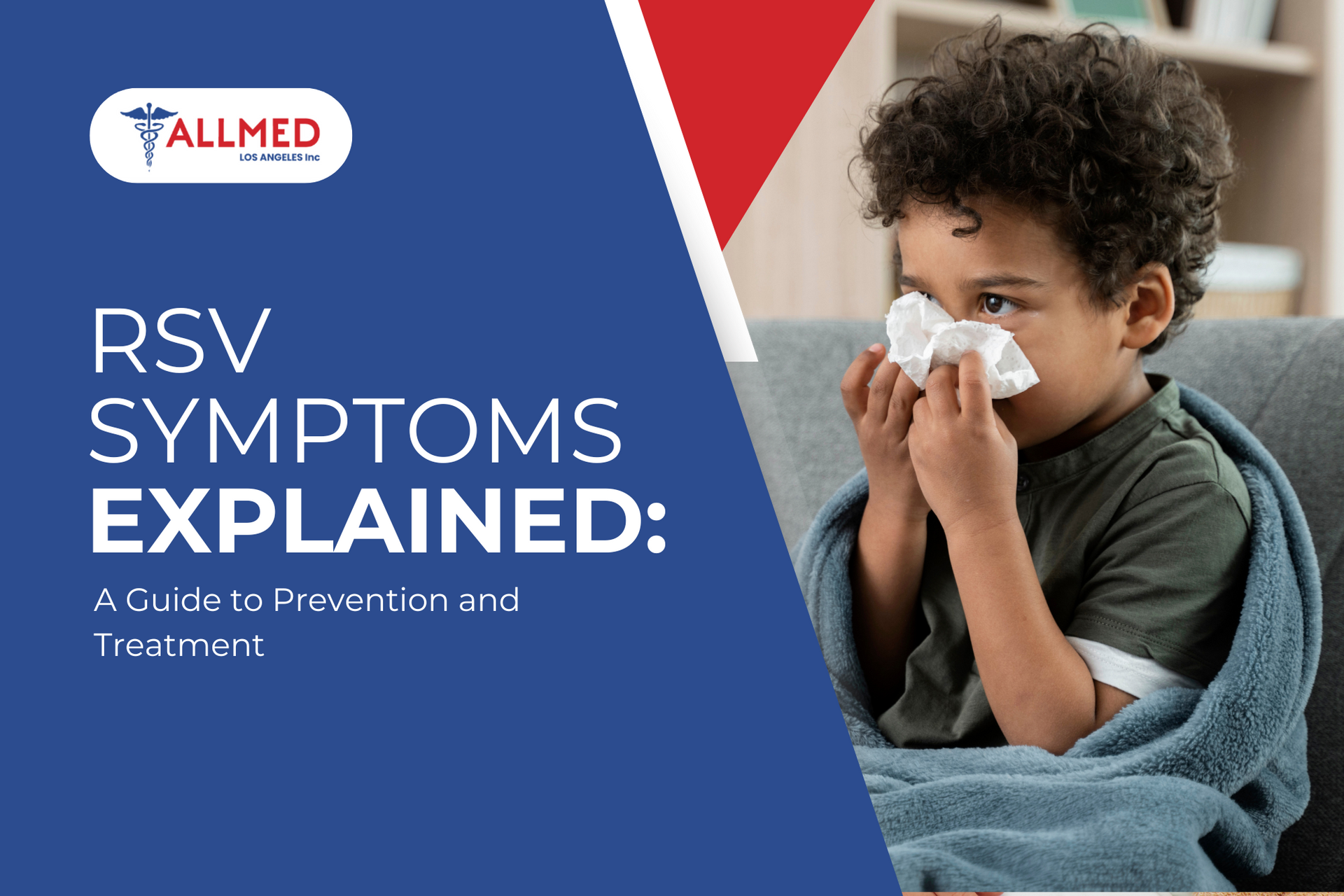What’s Making My Child Sick? A Guide to Common Illnesses

It’s 2 AM, and your child is running a fever again. You’ve already experienced a few sleepless nights and wonder if it’s just another cold or something more serious.
Children tend to get sick frequently, especially when they start school or daycare. But how do you know when to be concerned?
We’ve put together this guide to help parents and guardians like you recognize common childhood illnesses, what causes them, and when to consider taking your child to the doctor.
Prevent Childhood Illnesses with Allmed LA’s Trusted Care!
6 Common Childhood Illnesses
It’s always worrying when your child isn’t feeling their best. With so many common childhood diseases, figuring out what’s behind the symptoms can be tricky. Let’s look at some of the most frequent childhood ailments.
1. Colds and Flu
The common cold and influenza are two of the most frequent respiratory infections in children, especially during the colder school months.
Rhinoviruses are the most common cause of colds, usually bringing on symptoms like:
- Runny nose
- Sore throat
- Cough
- Mild fever
- General discomfort
More severe flu symptoms include:
- High fever
- Body aches
- Fatigue
Treatment of Colds and Flu:
Both illnesses are viral, so antibiotics are ineffective. Treatment includes managing symptoms through rest, hydration, and over-the-counter medications for pain and fever. Early flu diagnosis enables doctors to prescribe antiviral meds to ease symptoms and speed up recovery.
2. Ear Infections
Young children often get ear infections because their eustachian tubes are smaller and can easily become blocked. When fluid gets trapped, it can cause an infection, especially if they've recently had a cold.
Symptoms include:
- Ear pain
- Trouble hearing
- Fever
- Irritability
Treatment of Ear Infections:
For mild infections, the approach might range from prescribing antibiotics or pain relievers to simply keeping an eye on it to see if it improves naturally. If ear infections happen often, they may require further evaluation by a specialist.
3. Stomach Bugs (Gastroenteritis)
Gastroenteritis, commonly known as a stomach bug, is usually caused by viruses like norovirus or rotavirus. While stomach bugs are uncomfortable, they typically resolve within a few days.
Symptoms include:
- Vomiting
- Diarrhea
- Stomach cramps
- Mild fever
- Cold sweats
Treatment of Gastroenteritis:
The primary concern with gastroenteritis is preventing dehydration. Encourage your child to sip water or use oral rehydration solutions to stay hydrated. If vomiting and diarrhea persist, especially if your child shows signs of dehydration like sunken eyes, dry lips, or lethargy, consult a doctor.
4. Bronchiolitis
Bronchiolitis is a typical respiratory illness seen in babies and toddlers, especially during their first two years of life. The respiratory syncytial virus (RSV) often causes this illness, targeting the small airways in the lungs.
Symptoms include:
- Wheezing
- Coughing
- Difficulty breathing (fast or shallow breathing)
Treatment of Bronchitis:
Because bronchiolitis comes from a virus, antibiotics are ineffective. Treatment involves ensuring the child gets plenty of rest, fluids, and humidified air. For more severe cases, hospitalization might be needed.
5. Strep Throat
Strep throat, caused by Group A Streptococcus, spreads through respiratory droplets from coughing, sneezing, or close contact with an infected person. It’s most common in school-aged children and requires antibiotics for treatment; if untreated, it can cause complications.
Strep throat is highly contagious, so it’s essential to keep your child home from school or daycare until they’ve been on antibiotics for at least 24 hours and their symptoms begin to improve.
Symptoms include:
- Sudden and severe sore throat
- Difficulty swallowing
- Fever
- Swollen lymph nodes
- White patches on the tonsils.
- A red rash (known as scarlet fever) in some cases
Treatment of Strep Throat:
A rapid strep test confirms the infection, and doctors usually prescribe antibiotics to prevent complications like rheumatic fever or kidney inflammation.
6. Hand, Foot, and Mouth Disease (HFMD)
HFMD is a contagious viral illness that typically affects children under 5. Coxsackievirus causes this ailment, spreading through contact with an infected person’s saliva, nasal secretions, or stool.
Symptoms include:
- Fever
- Mouth sores
- Rash on the hands, feet, and sometimes buttocks
Treatment of Hand, Foot, and Mouth Disease:
HFMD is usually mild and resolves within a week. Treatment involves over-the-counter pain medications and encouraging hydration. Since mouth sores can be painful, cold liquids or foods may help relieve discomfort.
To prevent HFMD, disinfect toys and surfaces regularly, especially in settings where many children are in close contact, like daycare centers.
When to Seek Medical Attention
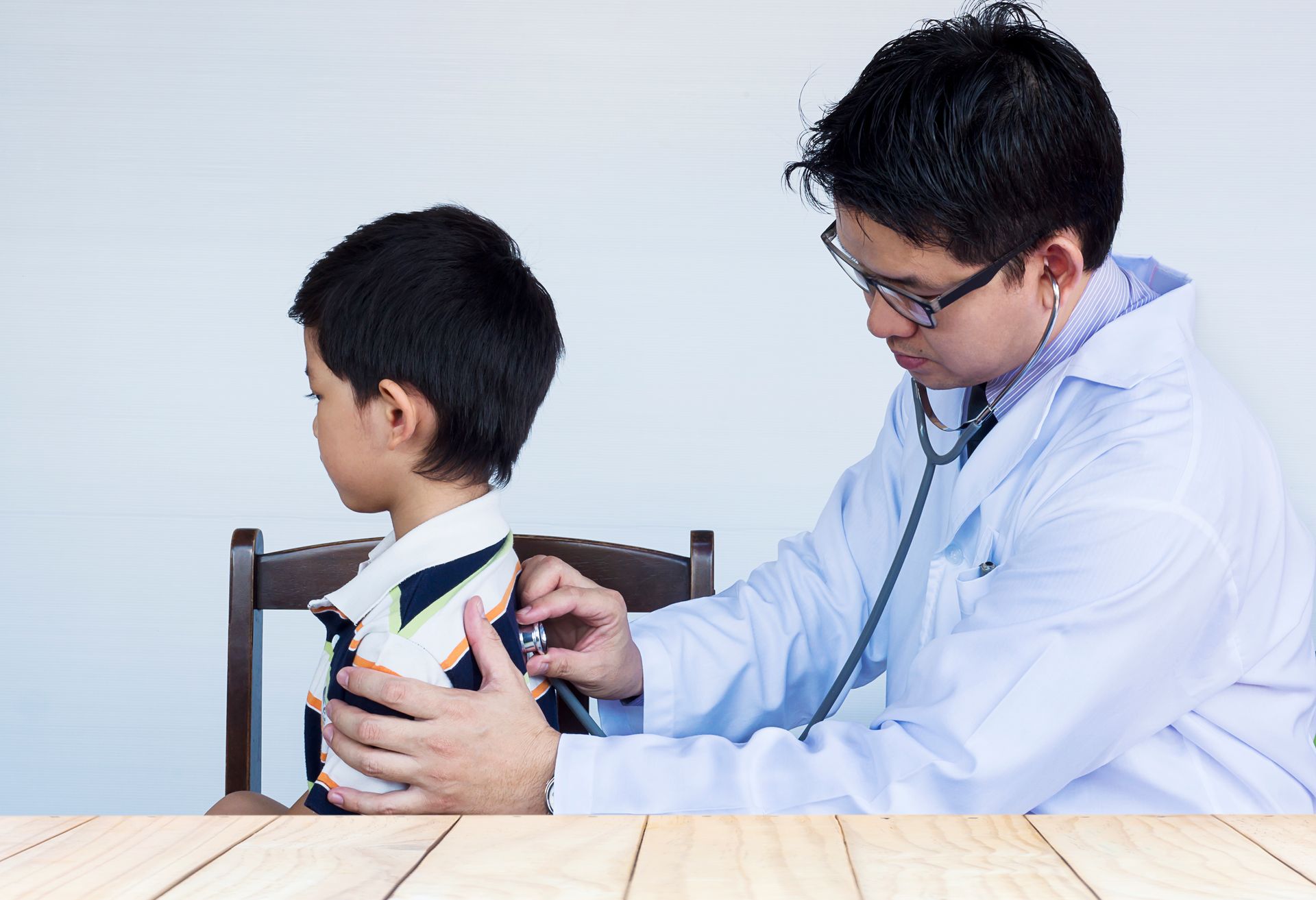
If your child’s symptoms seem more serious than just needing extra rest and fluids, here are some signs that it’s time to seek medical help.
- Seizures
- Bluish skin
- Severe headache or stiff neck
- Persistent crying or irritability in infants
- Injury with severe pain, swelling, or deformity
- Labored or rapid breathing, wheezing, or gasping for air
- Unusually drowsy, disoriented, or difficult to wake up
- Rashes with severe itching or swelling that spread or don't improve
- Severe abdominal pain accompanied by vomiting, swelling, or bloating
- High fever that exceeds 102°f (38.9°c) or lower-grade fever for more than 48 hours
- Persistent diarrhea or vomiting for more than 24 hours
- Dehydration that manifests as dry mouth, lack of urination, sunken eyes, or lethargy
5 Ways to Strengthen Children’s Health
While preventing every sickness is impossible, parents can do a lot to build up their children's immune systems and keep them healthier. Check out these five tips to help keep your child healthy and strong.
1. Teach Them Good Hygiene
Get your child into the habit of washing their hands regularly with soap and water. Remind them to cover their mouth when coughing or sneezing and try not to touch their face. These habits can make a big difference in keeping them and those around them from getting sick.
2. Serve Nutritious Foods
Give your kids balanced meals rich in vitamins and minerals to strengthen their immune systems. Antioxidant-rich foods like leafy greens and berries help them fight off infections, while omega-3s from fish are great for brain development. Reducing sugary and processed foods promotes long-term health and prevents chronic issues.
3. Get Adequate Sleep
Sleep is essential for strengthening your child’s immune system, improving memory, and balancing mood. Sticking to a regular bedtime routine is vital, especially since school-age children need 9-12 hours of sleep for proper growth and concentration.
4. Keep Them Active
Children who exercise are more energetic and better equipped to fight off infections. Getting kids moving for at least an hour daily improves their health. Physical activities can strengthen their hearts, build muscles, and release feel-good endorphins to lift their mood.
5. Have Routine Checkups and Vaccinations
Bringing your child in for regular checkups helps doctors monitor their development, address potential health problems, and keep their vaccinations up-to-date. Immunizations play a significant role in protecting them from illnesses like measles, mumps, and whooping cough.
Protect Your Child’s Health with Expert Care!
Proper care, prevention, and early intervention can go a long way in keeping your child healthy and happy. Schedule a consultation with Allmed today for routine checkups! We also offer telemedicine services, allowing you to get expert care from the comfort of your home.
We even accept walk-ins if you need urgent care for kids. Drop by any of our Los Angeles locations. Allmed LA offers a discounted/sliding fee schedule based on family size and income, ensuring equal access to quality and complete care.
Experience Convenient and Compassionate Family Medicine in LA
Can't afford to pay? Don't worry. Allmed Los Angeles offers a discounted/sliding fee schedule based on family size and income-ensuring everyone has access to quality and complete care.
Need to request Medical Records?
Send a fax to: 626 443 9646
Credentialing
credentialing@allmedla.org
Grievances
Allmed of Los Angeles Inc | All Rights Reserved.
